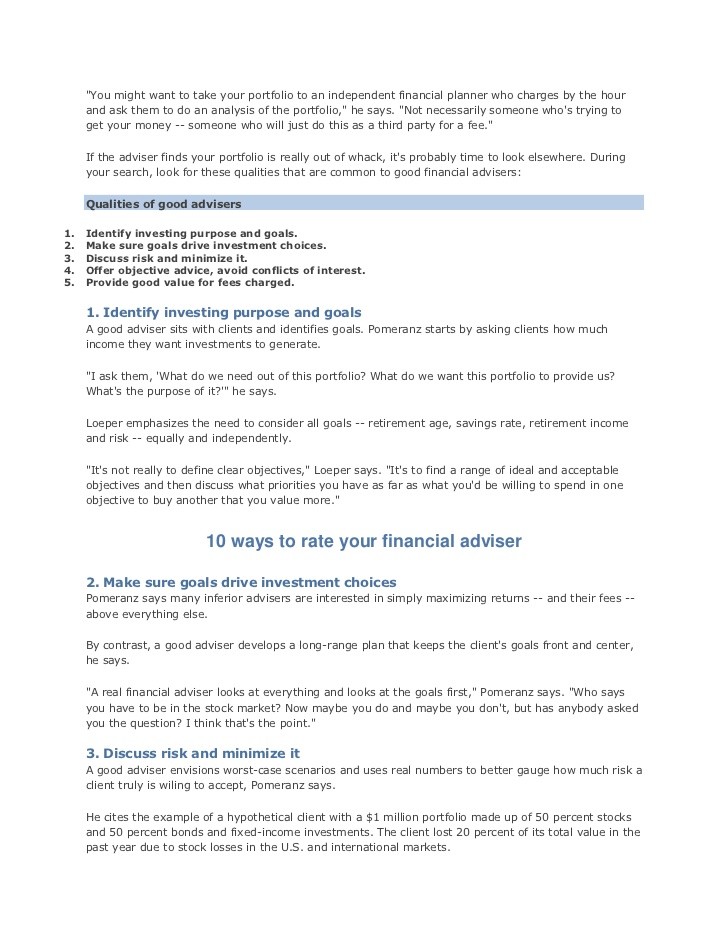10 Ways to rate your financial adviser
Post on: 4 Апрель, 2015 No Comment

Highlights
- Big stock losses place financial advisers under the microscope.
- Bad advisers take too much risk, ignore client goals.
- Good advisers tailor plan to individual, avoid conflicts of interest.
Earlier this year, the stock market fell to a 12-year low, losing 54 percent of its peak value and taking a vast chunk of ordinary Americans’ wealth with it.
In the wake of such big losses, many investors are looking for someone to hold accountable. That has placed financial advisers under the microscope.
From what I’ve seen from industry surveys and things like that, a very high percentage of people are re-evaluating their adviser, says David Loeper, chairman and CEO of Wealthcare Capital Management in Richmond, Va. and author of Stop the Investing Rip-Off.
How do you determine whether your adviser has your best interests at heart? By asking questions and doing your homework, says Kristin Kaepplein, director of the Office of Investor Education and Advocacy at the Securities and Exchange Commission.
Even when you are delegating management of your assets, that doesn’t mean you don’t have to do your due diligence, especially on an ongoing basis, Kaepplein says.
The following are five signs your adviser may be a dud — and, by contrast, five qualities the best financial advisers share.
Qualities of bad advisers
- Losses that exceed standard benchmarks.
- Selling products instead of sound advice.
- Maximizing risk regardless of goals.
- Linking past performance to future results.
- Failure to maintain basic investment safety standards.
1. Losses that exceed standard benchmarks
One way to identify mismanagement is to compare your losses with those experienced by others with similar goals and time horizons, Loeper says.
For example, Loeper recommends that workers planning to retire within the next eight years keep a mix of 45 percent stocks and 55 percent bonds. Such a portfolio would have resulted in a mere 12 percent loss last year, he says.
If you’re within 10 years of retirement and you lost more than 12 percent, somebody was making needless gambles with your money, and that’s a warning sign I would look for, he says.
2. Selling products instead of sound advice
If an adviser begins a conversation with a sales pitch for a specific product, it’s time to look for somebody new.
Loeper agrees that many advisers who are paid on commission have a financial incentive to steer clients into inappropriate investments. Fortunately, the financial crisis has given people a dose of reality about how much they should trust advisers, he says.














